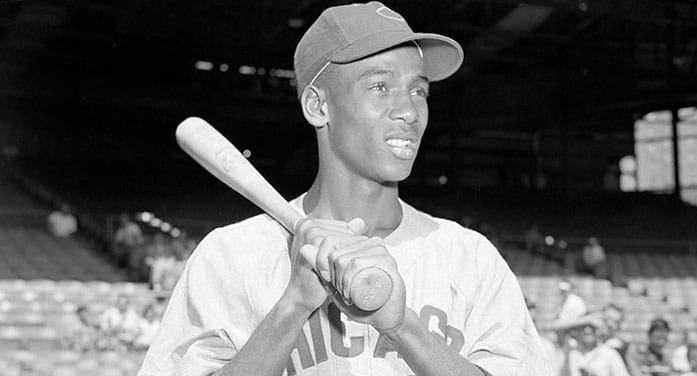 My earliest memories of baseball revolve around the 1969 Chicago Cubs. Enthusiasm just resonated off Wrigley Field as the great Ernie Banks chimed, “Let’s play two!”
My earliest memories of baseball revolve around the 1969 Chicago Cubs. Enthusiasm just resonated off Wrigley Field as the great Ernie Banks chimed, “Let’s play two!”
Regardless of the disastrous finish to that season for the Cubbies, a love for the game was planted in my soul as a seven-year-old. These heroes were larger than life.
I knew little of the impact segregation had on the game I grew up loving, or the impact it had on my heroes. I knew almost nothing about the courage of the men on the field, whose character extended far beyond the baseball diamond.
After Jackie Robinson and Larry Doby joined the National and American Leagues respectively in 1948, the writing was on the wall for the Negro Leagues. They still signed players and played games, but the number of fans began to dwindle. By the 1950s, the calibre of play had diminished and soon the great teams of the past were no more.
Many of the greats of my childhood were veterans of the Negro Leagues. Banks had played for the Kansas City Monarchs. Henry Aaron, who broke the Major League home run record in 1974, played for the Indianapolis Clowns. The unforgettable Willie Mays started his career with the Birmingham Black Barons. And there were many others.
America was deeply divided in the early 20th century and baseball commissioner Kenesaw Mountain Landis was determined to keep baseball segregated until his death in 1944.
Landis failed on several counts. While the top baseball leagues were segregated, the players weren’t. Athletes naturally want to go up against the best competition and they found ways to do so. Winter leagues in Latin American countries, for example, saw no point in segregating players. There were also forces beyond baseball that recognized our common humanity and the obscenity of segregation.
One also has to recognize that despite the efforts of Landis and others to keep black players out of the National and American Leagues, top-class baseball was indeed being played in the Negro Leagues.
It seems rather odd that it has taken Major League Baseball until 2020 to officially recognize statistics from the Negro Leagues as the equivalent of National and American League statistics. The calibre of play was well known to the athletes and fans. There has arguably been no greater pitcher than Satchel Paige, who joined Doby in Cleveland in 1948 and humiliated American League batters while in his 40s, normally well past the prime of a baseball player.
Racism is pointless and will inevitably fail, as it did in baseball. But it is part of our history. Today there are only two known Negro League stadiums standing, Hinchliffe Stadium in Paterson, N.J., where Doby grew up, and Rickwood Field in Birmingham, Ala., where Mays once played. These living monuments need to be preserved.
Racism didn’t end once the American and National Leagues were integrated. In many ways it became much worse. Young black players like Bank’s teammate Billy Williams and Dick Allen, who played for the Chicago White Sox, were harassed and threatened while playing minor league baseball. Even the great Aaron received hundreds of thousands of letters threatening violence as he neared Babe Ruth’s home run record.
There are several important lessons to take away from studying segregation in baseball. The most obvious is that there will be small-minded people who aren’t able to see the richness of human diversity.
Though they may do their best to create conditions that keep us apart, however, the greatness in the human spirit will always find a way to bring us back together and help us to become better.
Gerry Chidiac is an award-winning high school teacher specializing in languages, genocide studies and work with at-risk students.
For interview requests, click here. You must be a Troy Media Marketplace media subscriber to access our Sourcebook.
The views, opinions and positions expressed by columnists and contributors are the author’s alone. They do not inherently or expressly reflect the views, opinions and/or positions of our publication.
COMMUNITY NEWS OUTLET ACTION PLAN!
WEBSITE HOSTING AND ALL TROY MEDIA EDITORIAL CONTENT POSTED TO YOUR SITE DAILY FOR ONLY $129.95 PER MONTH.
Limited time offer: Get your first 2 months FREE! Click here for details.


